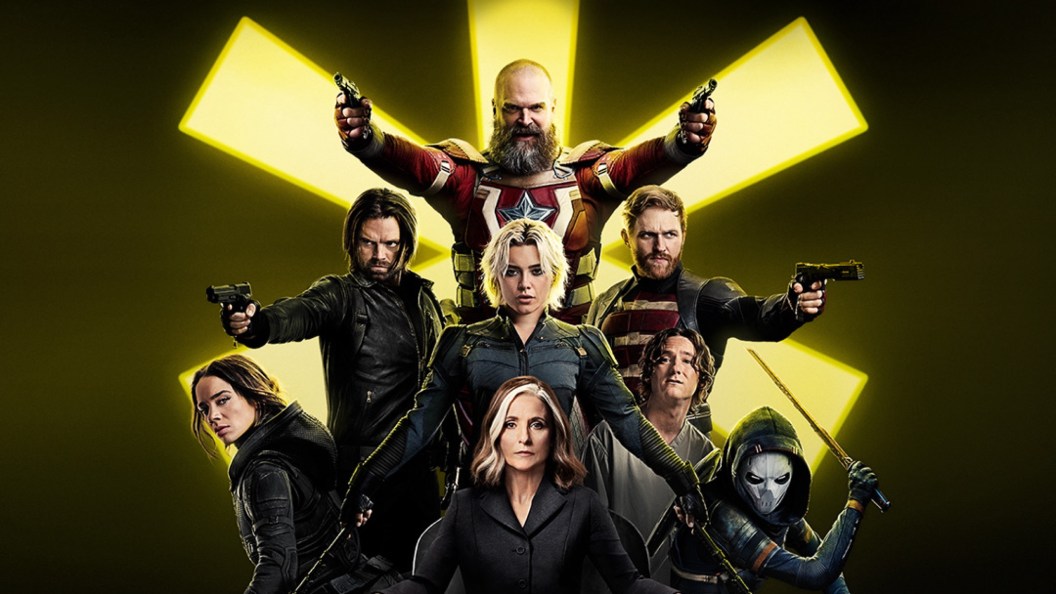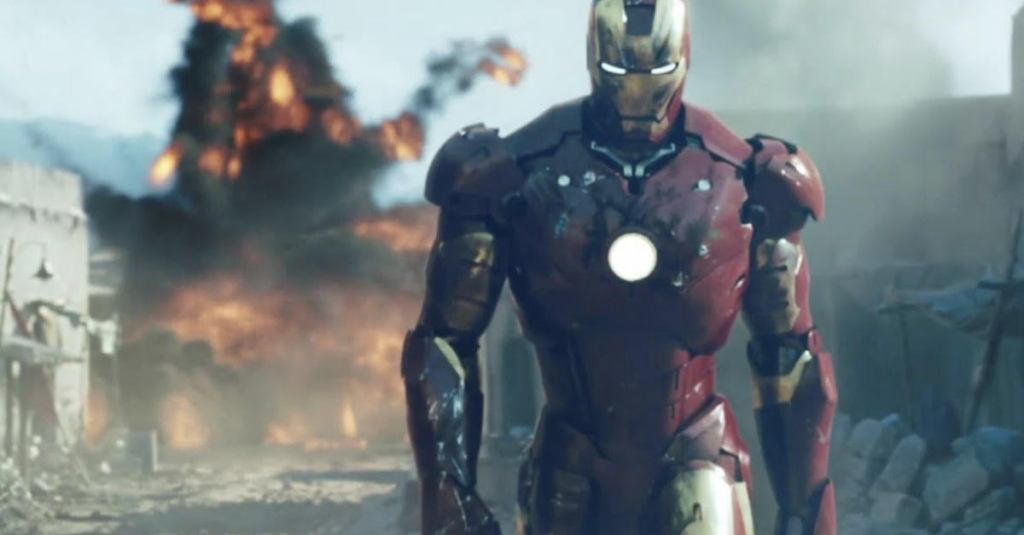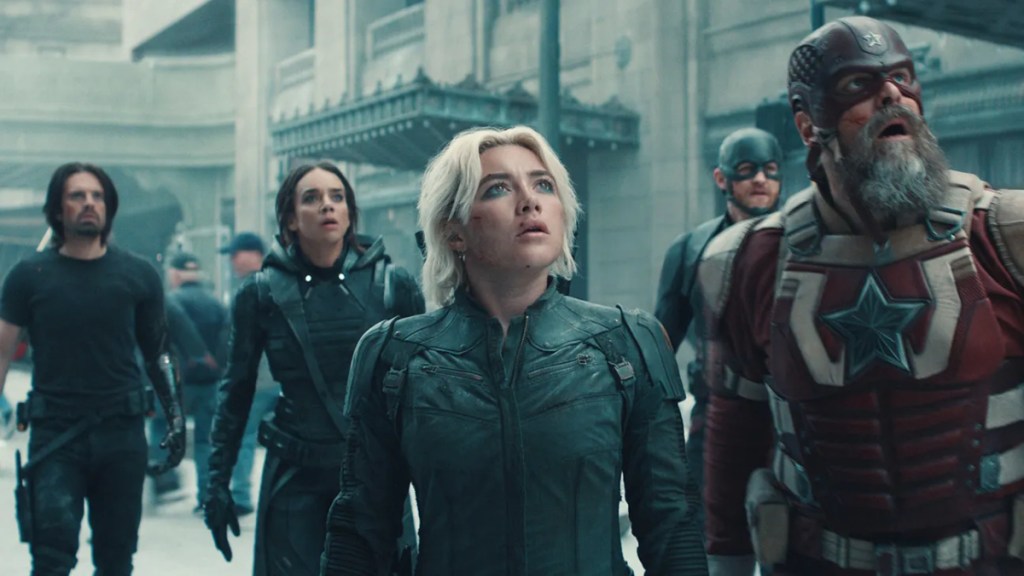
Roughly an entire year before The Fantastic Four: First Steps hit theaters (and just as the film began principal photography), composer Michael Giacchino was announced to be providing the film’s score. Given the man’s extensive experience with scoring prior Marvel Cinematic Universe outings, as well as the two retro-superhero Incredibles films for Disney-Pixar, he was a perfect and much-hyped fit for the feature’s soundtrack. However, composers for the MCU don’t typically get this much hype.
For years now, video essays and articles have been published on the lackluster nature of MCU movie scores. Most Phase Four and Phase Five movies and TV shows in this franchise haven’t beaten these allegations and criticisms. Can anyone remember a single track from Rob Simonsen’s and Christophe Beck’s respective Deadpool & Wolverine and Ant-Man and the Wasp: Quantumania scores? However, a solution for giving these soundtracks a creative boost can be found in some of the best composers working today, not to mention the score of Phase Five’s final film.
Here’s the Problem With So Many MCU Film Scores

In general, mainstream American movie soundtracks have often been criticized for sounding too similar. In a very, very condensed nutshell, Hans Zimmer’s film score company Remote Control Productions has a massive amount of influence in Hollywood. So many major composers have emerged from this institution, including legendary modern film/television composers like Nicholas Britell and John Powell.
However, especially in the last 20 years, many have lambasted Remote Control veterans for being inescapable in Hollywood. Every major studio genre film now seems to be scored by the likes of Lorne Balfe, Benjamin Wallfisch, Tom Holkenborg, or other Remote Control old-timers. Such artists have been criticized for delivering scores that sound indistinguishable from one another. These artists, trained and largely experienced only in film scores, often craft scores determined to give audiences only what they hear. They provide hollow echoes of pre-existing music, not the excitingly new sounds informing the best film scores.
From the very beginning, the MCU has suffered from these criticisms. High-profile reviews of Ramin Djawadi’s Iron Man score lambasted these forgettable tracks for their lack of personality or musical audacity. From there, the MCU’s soundtracks leaned heavily on more uninspired composers choices like Brian Taylor, Henry Jackman, Bafle, and Simonsen. The most acclaimed MCU scores came from either older, classic movie score legends like Alan Silvestri or stepping outside of the box entirely with Ludwig Göransson.
Rather than being a Hans Zimmer protege constantly mimicking what “normal” blockbuster movies sound like, Göransson’s revered Black Panther tracks were full of verve and personality. They didn’t harken back to Zimmer and John Williams tracks, they blazed a new trail for what film scores could sound like. It was an inevitable byproduct for a composer that had been (in addition to scoring films for seven years) largely worked as a producer and/or co-writer for an eclectic array of bands like Childish Gambino, Haim, and Chance the Rapper.
Göransson’s epitomizes what the MCU must do to get its soundtracks back hitting the high notes: get score composers who are not known first and foremost for their film scores.
MCU Soundtracks Should Take Come Cues From the Thunderbolts* Score

Some of the very best film composers today are the likes of Nine Inch Nails frontmen Trent Reznor & Atticus Ross, Radiohead veteran Jonny Greenwood, New York punk legend Tamar-kali, and video game music/TV theme song legend Daniel Pemberton (among others). These artists don’t exist to just mimic Hans Zimmer nor do they deliver film scores rigidly imitating what’s worked in the past. They mold the world of film scores to their exciting, bold visions, rather than diluting their creativity to be another Zimmer clone.
Bringing in relative “outsiders” to the feature film score game is a boon for cinema and music lovers everywhere. These artists break the rules and make iconic scores that never leave your head. While the MCU has usually featured scores that refuse to take such risks, Phase Five’s final movie, Thunderbolts*, embraced just this kind of offbeat score. For this feature, the electronica band Son Lux was hired to do the score. The trio of Son Lux had only collaborated together on two feature-length movie scores before, one of them being the Oscar-winning Everything Everywhere All at Once.
However, for Thunderbolts*, Son Lux proved to be a perfect choice. Their tracks radiated with a distinctively dissonant and janky identity. Leaning heavily on fast-paced violins, eerie screeching noises, and ominous ambiances even for supposedly triumphant tracks like “It’s Bucky!”, Son Lux’s Thunderbolts* score captured the fractured, troubled psyche of its lead characters. Little touches, like how certain parts of some tracks sounded like they were being played in the far-off distance, just further accentuated the craftsmanship and distinctiveness of this soundtrack.
Best of all, it didn’t sound like a normal Marvel movie score. On the contrary, the Thunderbolts* score features several tracks that sound like interesting dissonant contouring of Alan Silvestri’s Avengers themes. Speaking of Silvestri, his outstanding MCU scores, not to mention Giacchino’s terrific work in this franchise, show there’s a place for film score pros in this franchise. However, if the MCU wants to finally shake off the criticisms of its original scores that have existed since the Iron Man days, then it’s time to embrace more composers like Son Lux who aren’t exclusively known for film scores. Embrace the new and audiences tend to admire rather than cower from the artistic bravery.
Thunderbolts* is now available to rent or purchase digitally, The Fantastic Four: First Steps hits theaters on July 25.
The post The MCU Needs To Copy A Major Lesson From Their Most Recent Box Office Disappointment appeared first on ComicBook.com.


